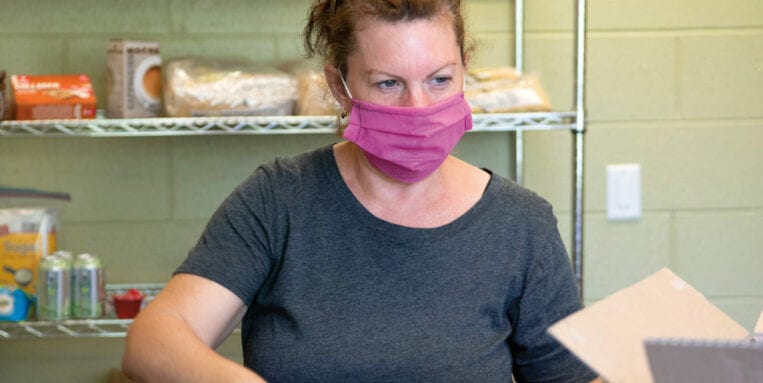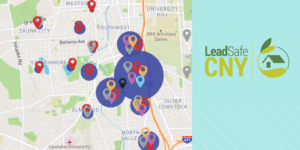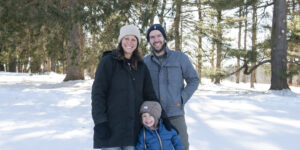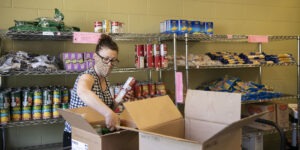Staff members of Huntington Family Centers, Westcott Community Center, Syracuse Community Connections at the Southwest Community Center, and Syracuse Northeast Community Center have collaborated for years, sharing strategies to best serve city neighbors. So when COVID-19 spurred a large and sudden spike in requests for emergency assistance, it made sense for the centers to seek a joint grant from the COVID-19 Community Support Fund.
“We all saw a huge uptick in the number of people who needed food. We were also out of diapers all the time,” said Mary Lou Sayles, executive director of Huntington Family Centers.
The directors’ partnership was formalized with a 2018 Alliance for Economic Inclusion grant that created the Community Center Collaborative (CCC). The CCC’s team spirit and shared marketing and program staff made it easy for the four centers to work together on a common need during the coronavirus pandemic.
“Our clients already face challenges, and COVID only made it worse for many,” Sayles said. “Changes came so fast and they were panicked and scared. We didn’t want to turn anyone away.”
During the crisis, the CCC met each center’s distinctive requirements, restructuring services to comply with health and safety guidelines, and tracking data to monitor needs. Centers loosened pre-registration and residence rules to be more efficient and responsive to needs.
A $50,000 COVID-19 Community Support Fund grant supported the CCC’s food pantries and the distribution of diapers and health and hygiene products.
Huntington Family Center, located on Syracuse’s Near Westside, provided about 2,400 meals a week — at least twice what the agency typically distributes. Requests for diapers tripled. The other three centers experienced similar increases.
Huntington shifted from a choice pantry, which allows clients to “shop” from the inventory, to curbside delivery. “We were packing the boxes and bringing them out,” Sayles said. “It was nonstop.
Then we had to restock for the next pantry day.”
The CCC’s grant reflects the centers’ commitment to providing services to the entire city. “We did not want to have one program funded at the cost of another program,” Sayles said.
“Every neighborhood in Syracuse has unique characteristics, and every neighborhood center is unique in some ways,” she said.
“All the centers share a desire to strengthen the families and residents of our neighborhoods. We are places where all neighbors are valued and welcomed.”









